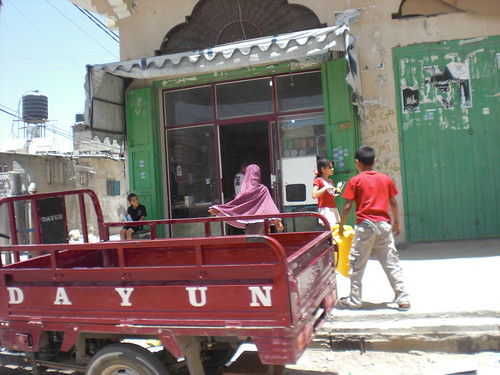Why Is the Rafah Border Crossing So Important for Gaza?
Gaza #Gaza

After Israel imposed a complete siege of the Gaza Strip in response to the deadly Oct. 7 attack by Hamas, the strip’s border crossing with Egypt became even more critical, as the only point not controlled by Israel where civilians can enter and leave Gaza by land.
But Egypt has kept the crossing, near the southern Gaza city of Rafah, sealed since Oct. 10, as diplomatic negotiations to allow people and supplies pass dragged. The pressure to open it has increased as Israel prepares a possible ground invasion of Gaza and as living conditions in the Gaza Strip have deteriorated rapidly amid punishing Israeli airstrikes — some of which have also hit the crossing.
President Joe Biden said Wednesday that he had urged Israel to allow some humanitarian aid into Gaza, and Israel said that it would not block deliveries from Egypt, offering the first sign of relief to civilians in the enclave. There was no immediate comment from Egypt, where emergency supplies are waiting to cross through the key land border with Gaza.
Sign up for The Morning newsletter from the New York Times
Here is what to know about the Rafah crossing:
What does it look like?
On the Palestinian side, two giant arcing structures cross each other above a short building encased in stone, with ornate metal gates blocking the way. In recent days, people hoping to leave Gaza have waited near this area.
After passing through these gates, travelers encounter another Palestinian gate, where their credentials are checked. Then they usually get on a bus to travel a few hundred yards to the Egyptian part of the crossing. Private vehicles are not allowed to pass.
On the Egyptian side is a wide structure with a yellow facade. Photos have shown aid workers parking their trucks by the gate on that side, waiting for a decision to be made on the opening of the crossing.
Why is Rafah important to Gaza?
Restrictions on the movement of people and goods to and from Gaza, imposed by both Israel and Egypt, have undermined the living conditions of Palestinians in the Gaza Strip. Both Israel and Egypt have made entering from Gaza conditional on obtaining a permit from either government.
Egypt has at times kept the gate closed in response to security conditions. In 2022, the Rafah gate was open on 245 days, according to a United Nations report, which said that more than 133,000 people entered and 144,000 exited.
Goods such as diesel, cooking gas and construction materials normally pass through the nearby Salah a-Din gate, which started operating in 2018. Before that, said Tania Hary, executive director of Gisha, an Israeli nonprofit organization that advocates for the free movement of Palestinians, household goods were mostly smuggled through underground tunnels.
How has Rafah been affected by the war?
According to the U.N. high commissioner for human rights, the crossing has been damaged by Israel’s retaliatory airstrikes against Hamas, the armed Islamic group that controls Gaza. After analyzing videos and satellite imagery, The New York Times verified multiple strikes that hit close to the crossing.
On Monday, some foreign passport holders who were waiting at the border in hopes that it would open so they could leave Gaza said they were evacuated after the crossing was struck.
On Tuesday, U.S. officials said they hoped Israel would refrain from bombing the Rafah crossing area.
What is the situation now?
Hundreds of people have gathered in front of the gates on the Gaza side in recent days, following suggestions that foreign and dual citizens might be able to leave. But efforts by the United States and others to broker a deal with Israel and Egypt to allow foreigners citizens to leave and humanitarian aid to get in have so far failed to bear fruit, and the border has stayed closed.
Many American citizens in Gaza said they were staying in temporary accommodations near the border so they could be ready to cross in case it opened. Like most in Gaza, they have had to limit communications because it has been hard to find power to charge their phones, and they have struggled to find medicine, water and food.
At one point this week, guards on the Gaza side of the crossing were telling people it was closed, according to a Palestinian American who was hoping to cross. A Palestinian official said the guards were from the Hamas-run Interior Ministry.
Truckloads of aid from several countries have been waiting for the green light to cross into Gaza from Egypt. Photos and videos show lines of aid trucks idling as far away as the Egyptian city of Arish, about 30 miles from the border. On Wednesday, a World Health Organization official said the delays were the result of “finger pointing” and were “extremely frustrating.”
c.2023 The New York Times Company